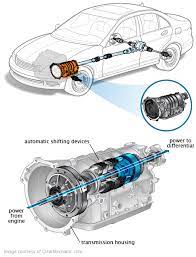Why Car Loans May Not Be the Best Option for Buying a Second-Hand Car

In today's fast-paced world, owning a car is often seen as a necessity rather than a luxury. However, the decision to purchase a second-hand car can be fraught with financial implications, especially when considering the means to finance it. While car loans are a common route, they may not always be the best option. Here, we explore why car loans might not be the optimal choice for buying a pre-owned vehicle and suggest alternative methods that could prove more advantageous.
Interest Rates: One of the primary drawbacks of car loans, especially for used cars, is the interest rates. Lenders typically charge higher interest rates for used car loans compared to new ones. This means you end up paying more in interest over the life of the loan, significantly increasing the overall cost of the vehicle.
Depreciation: Unlike homes, cars depreciate in value over time. Second-hand cars, in particular, experience rapid depreciation, which can leave you owing more on the loan than the car is worth. This situation, known as being "upside-down" on the loan, can trap you in a cycle of negative equity.
Loan Terms: Car loans often come with long repayment terms, which can extend for five years or more. While this may lower your monthly payments, it also means you'll be paying interest for a longer period, further increasing the total cost of the loan.
Credit Impact: Taking out a car loan can affect your credit score, especially if you already have existing debt. Multiple inquiries into your credit report can lower your score, making it harder to qualify for favorable loan terms in the future.
Given these considerations, it's essential to explore alternative ways to finance a second-hand car purchase:
Savings: If possible, saving up to buy a used car outright can save you a significant amount of money in interest payments. Even if it takes longer to accumulate the necessary funds, the financial freedom and reduced stress of owning the car outright can outweigh the wait.Personal Loans: While personal loans may also carry higher interest rates for used cars, they offer more flexibility in terms of repayment and can be obtained from a variety of lenders, including banks, credit unions, and online lenders.
Dealer Financing: Some dealerships offer financing options for used cars that may be more favorable than traditional car loans. However, it's essential to carefully review the terms and conditions, including the interest rate, loan duration, and any additional fees.
Leasing: Leasing a used car can be an attractive option for those who prefer lower monthly payments and the ability to upgrade to a newer model after the lease term ends. However, it's crucial to consider the mileage limits and potential maintenance costs associated with leasing.
While car loans are a common means of financing a vehicle purchase, they may not always be the best option, particularly when buying a second-hand car. By considering alternatives such as saving up, personal loans, dealer financing, or leasing, you can make a more informed decision that aligns with your financial goals and circumstances. Remember to carefully evaluate the pros and cons of each option before making a final choice.



Comments
Post a Comment